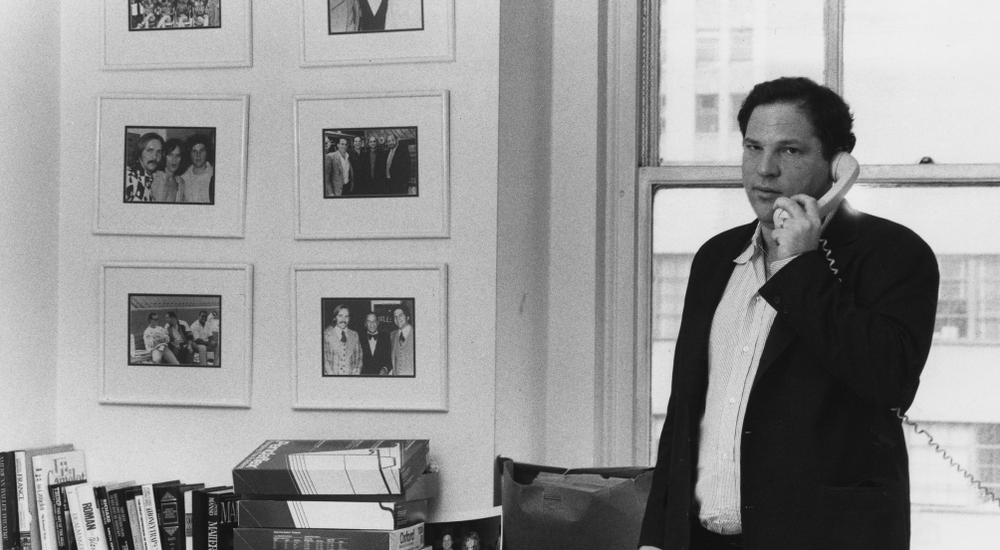There is no shortage of horrifying stories about Harvey Weinstein in Untouchable. While we now know that the most powerful producer in Hollywood was an abhorrent sexual predator, this documentary reveals he was abusive at every level, from assistants to reporters to even his own brother.
We learn early on that Weinstein pressured women into sex well before he co-founded Miramax with his brother Bob. As a successful concert promoter in Buffalo, New York, an assistant recalls a business trip to Manhattan where a "reservation screw-up" resulted in them having to share a hotel room with a single bed. When Weinstein got in bed next to her naked, she protested, and he responded with a chilling, "You don't want to make an enemy out of me for five minutes of your time." It's clear he was a monster even before he came to power, and only became a bigger one once he had it.
1989 was the turning point for Miramax, with three major arthouse hits: sex, lies and videotape; Cinema Paradiso, and My Left Foot. The latter two films won Oscars. And for the whole of the '90s, Miramax was a major success, earning Best Picture nominations for 10 straight years, something no other studio could claim. But even in the early days, there were plenty of abrupt resignations, lawsuits and big cash settlements for women Weinstein abused and harassed. Some staffers were proudly to say they quit right away, others admit they stayed and said nothing, and have to carry around that shame.
While the film is unflinching in having actresses share their stories of inappropriate auditions and meetings with Weinstein, the film is chock-full of pretty lousy background footage. Lots of pans into luxury hotel suites, shot through hazy filters. Plenty of close-ups of black SUVs driving through New York. Drone footage shot over the Hollywood Hills. And the score by Anne Nikitin is all ominous tones with no real purpose other than to underline how awful these situations were.
The story that stuck with me the most, because it spoke to Weinstein's immense power, was a retelling of a party in 2001. A reporter went up to ask him why their new movie O was being delayed. Weinstein said, "That's my brother's movie. I don't know anything about that." But when he went back to her and asked she not use the quote, she refused, then he went on a tirade, calling her awful names and trying to grab her recorder. Her boyfriend stepped in between them, and Weinstein shoved him out into the street and proceeded to beat him relentlessly. All the photographers got plenty of pictures of this insanity, yet not a single photo made it into any paper the next day, or ever. Even Ronan Farrow, whose story in the New Yorker helped bring Weinstein down, had his story killed by NBC News executives. Eventually, the truth came out.
The film's final 10 minutes are the most enraging and the most encouraging. Just a few months before the stories in the New Yorker and the New York Times brought him down, Weinstein was a guest of honor at a Planned Parenthood event, seated with the likes of Hillary Clinton and Meryl Streep. This was well after Weinstein had lost his power and there had been plenty of open secrets about his behavior. But now he's a pariah, broke and with no one to lord over. But the film saves its big challenge for last: Bringing down Harvey Weinstein and men like him can only be the start. Things won't change until all the people who enabled him are held accountable, too.

